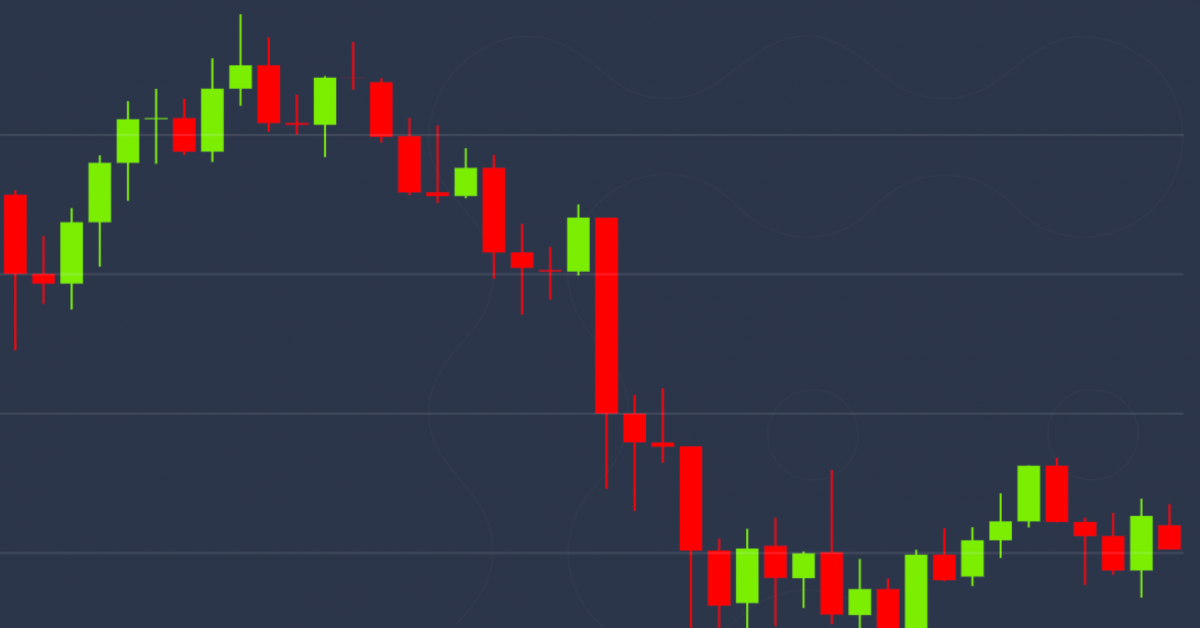You know things are weird when bitcoin is getting less volatile and stocks aren’t.
After surging about a month ago during a frantic sell-off, the 30-day volatility of daily returns from the leading cryptocurrency has dropped in recent days, and is almost back to where it was before the panic started in early March.
Meanwhile, the volatility of the S&P 500 index of large U.S. stocks, which also skyrocketed in March as the coronavirus paralyzed the world’s economies, has plateaued.

What’s causing the S&P to continue its volatility run while even bitcoin is returning to its version of normal? The mixed performance of various stocks within the bellwether index is part of a problem.
“The interesting game now is not S&P 500, but some of the top stocks inside. Just check Tesla and Amazon, they are moving much better than S&P on average,” said Maksim Balashevich CEO of Santiment, a firm that analyzes market data.
To be clear, over the long term bitcoin remains the more volatile investment by a wide margin. And risk assets of all stripes remain subject to wilder swings than usual.
“Investors are generally looking for stability and volatile assets will be sold no matter what they are,” said Denis Vinokourov, head of research at crypto investment brokerage Bequant, regarding the S&P 500’s fraught performance.
Balashevich noted that an index like the S&P 500 doesn’t account for the divergent fortunes of different sectors in a pandemic, where leisure stocks perform badly but online retailers make gains. Crypto beats such a blunt instrument in this environment, he argued.
“I would bet for BTC and ETH,” he said. The S&P 500 will keep struggling as the economy is in a split.”
Today’s price action
Prices for bitcoin (BTC) slipped 1 percent in 24 hour trading Wednesday, according to CryptoX’s Bitcoin Price Index.
Trading for the world’s oldest cryptocurrency has dipped below its 50-day moving average on spot exchanges like Coinbase. The price for 1 BTC has been attempting to break back above its 10-day moving average but has been stuck in the $6,700 range for the past eight hours of trading as of 21:00 UTC (5:00 p.m. EDT) April 15.

Recent data suggest that many investors are holding onto bitcoin rather than participating as active sellers in the market. Over-the-counter (OTC) trading activity can be an indicator of this as well.
“I do get much less sellers contacting me now, so a jump to maybe $7,500 or $8,000 would give a push to the OTC market in bitcoin,” said Henrik Kugelberg,” a Sweden-based crypto OTC trader.
An influx of stablecoin activity could provide a boost, as often issuance in that market translates into purchases of free-floating assets such as bitcoin and ether, creating price bumps.

Other analysts see pessimistic signals amid a return to calmer markets since March’s steep dip in prices to below $4,000 at one point.
“Starting to feel a bit more bearish given we failed around the $7,200 level, likely to test $6,500 in the next day or so,” said Chris Thomas, head of digital assets at Swissquote Bank.
“If it fails we’ll likely squeeze lower off the back of Asian volumes, which I think people will use as an opportunity to get into the market,” he added. The Nikkei 225 stock index, an indicator for Asia, fell by less than a percent Wednesday, its first time in the red this week as major gains in transportation offset selling in other sectors.
Other markets
Most major digital assets are mixed on CryptoX’s big board for the day. Ether (ETH) dipped less than 1 percent. Big losers include iota (IOTA) in the red at 2.9 percent and litecoin (LTC) losing 1.7 percent. One asset flashing green is lisk (LSK) up 4 percent All price changes are from 21:15 UTC (5:15 p.m. EDT) Tuesday.
Elsewhere, gold is sideways today, slipping less than 1 percent after a massive uptrend movement since April 9. Gold has been soundly beating bitcoin’s performance this year, up double digit percentage points since the start of 2020 whereas bitcoin is down 5 percent on the year.

The FTSE 100 index ended Wednesday down 2.9 percent with weak oil demand is affecting companies like BP and Shell in the European markets.
The S&P 500 index of large U.S. stocks slipped 2.2 percent as the Federal Reserve’s beige book analysis of economic activity noted sharp contraction Wednesday.
Also notable is that U.S. Treasury bonds experienced selling Wednesday, with two-year, ten-year and thirty-year yields all down sharply. Most notable was 10-year Treasurys, in the red more than 15 percent on the day.
Disclosure Read More
The leader in blockchain news, CryptoX is a media outlet that strives for the highest journalistic standards and abides by a strict set of editorial policies. CryptoX is an independent operating subsidiary of Digital Currency Group, which invests in cryptocurrencies and blockchain startups.




